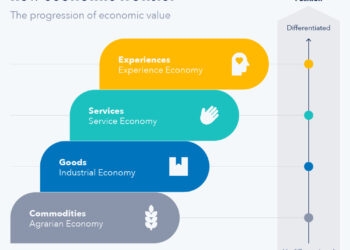The Economic Significance of Travel and Tourism in Europe
Travel and tourism play a pivotal role in shaping the economic landscape of Europe. With its rich history, diverse cultures, and breathtaking landscapes, Europe stands as a premier destination for travelers from around the globe. According to reports from the World Travel & Tourism Council (WTTC), the impact of this sector on European economies is both substantial and multifaceted.
Overview of Travel and Tourism Impact
The tourism industry encompasses a wide array of services, including accommodation, transportation, food and beverage, entertainment, and excursions. Together, these components contribute significantly to national and regional economies. In many European countries, tourism is not only a source of income but also a major employer.
Contribution to GDP
One of the most compelling statistics highlighting the importance of the tourism sector is its contribution to the Gross Domestic Product (GDP) of various nations. Countries like Croatia exemplify this trend, where travel and tourism accounted for over a quarter of its GDP in 2023. This level of contribution showcases how crucial tourism is for the economic vitality of nations.
Regional Variations
The extent of tourism’s contribution to GDP can vary widely across different regions in Europe. Countries with significant natural attractions, such as Switzerland and Austria, see a high percentage of their economic output stemming from outdoor and leisure tourism. In contrast, urban destinations like Paris and Rome experience considerable impact from cultural and historical tourism.
Employment Opportunities
The tourism sector is a substantial source of employment across Europe, providing jobs for millions. It spans various skill levels, from entry-level positions in hospitality to high-skilled jobs in management and service delivery. The jobs created extend beyond direct tourism roles; they also stimulate employment in related sectors, such as retail, transportation, and services.
Case Study: Croatia
Focusing on Croatia, the tourism industry is a cornerstone of its economy. The stunning Adriatic coast, rich culinary heritage, and cultural festivals attract millions of visitors each year. The high percentage of GDP attributed to tourism indicates a heavy reliance on this sector for economic stability and growth. Additionally, the seasonal nature of tourism in Croatia presents both opportunities and challenges, necessitating strategies for year-round economic sustainability.
Economic Diversification
Many European nations are leveraging the strengths of their travel and tourism sectors to diversify their economies. By investing in infrastructure, promoting eco-tourism, and enhancing cultural experiences, countries are not only attracting tourists but creating a more resilient economic environment. This diversification is critical in the face of challenges such as economic disruptions or global crises like the COVID-19 pandemic.
Challenges Facing the Sector
Despite its successes, the travel and tourism industry in Europe faces numerous challenges. Factors such as geopolitical tensions, climate change, and economic fluctuations can impact travel behavior. Additionally, the rise of sustainable travel poses a significant challenge, as there is increasing pressure on the industry to adopt environmentally friendly practices that can sometimes conflict with profit motives.
Adapting to Change
In response to these challenges, many European nations are innovating to ensure the resilience of their tourism sectors. This includes investing in sustainable practices, enhancing digital marketing strategies, and fostering partnerships with local communities to create authentic travel experiences. Such adaptations are not only vital for attracting tourists but also play a crucial role in preserving cultural heritage and natural resources for future generations.
Future Prospects
Looking ahead, the travel and tourism industry in Europe is poised for continued growth. With advancements in technology, evolving consumer preferences, and a renewed interest in unique travel experiences, the sector’s potential remains vast. Furthermore, as countries focus on sustainable tourism practices, there is an opportunity to enhance the long-term viability of this crucial economic contributor.
By embracing innovative strategies and prioritizing sustainable practices, Europe can continue to thrive as a leading travel destination, enriching both its economies and the lives of those who visit.






